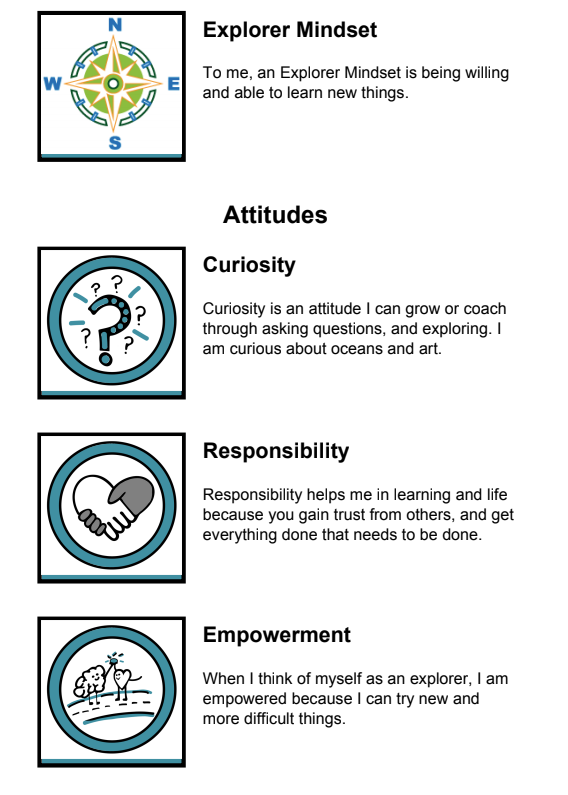
Learners exploring an issue in Socratic seminar
By Kelly Koller
Even though I am leading up the project of this web tool, the Explorer Mindset is a work in progress for me. I think it will always be. After all, that is the nature of exploration. To me implementing an Explorer Mindset in ELA means breathing life into a content area that many learners dread and changing the perspective: content is not inflicted on you, you are an explorer of it. These are just a few strategies that I feel help flip that script and provide the opportunity for student-driven exploration.
Socratic Seminar
I love the concept that we can use conversation to explore the world. Just like reading a book is a way to experience places and events that go beyond our own life, conversation can be used to explore and learn from others. Socratic seminar, a formal discussion based on a text, is a great method that can be used for students to explore an issue or question and practice valuable communication skills. A question is posed, a resource text or texts are provided and learners are given time to read the text, determine their viewpoint on the question and find evidence in the text that supports their position on the question. For discussion I have students form circles in small groups where they listen closely to the comments of others, think critically for themselves, pose additional questions to the group and share their thoughts making sure to cite evidence that supports their opinion.

Conversation is a way to explore
Using the Outdoors for Inspiration
What better way to practice descriptive writing skills than to use your observations? I am passionate about taking learners outside, period. For anything. But I also see real academic benefits to literacy when students write using their observations. I am so passionate about it I created an online compilation of over 100 resources found here. In those folders you will find activities where, for example, students practice writing in sensory detail, write similes and metaphors, identify parts of speech, all while using the rich outdoor environment. Any schoolyard or outdoor setting, whether it is urban or rural, is rich with more detail than the four walls of a classroom can provide.
Simple Wording Changes: Easy and Effective
This year I have really enjoyed using simple wording changes to change the perspective on our daily learning targets. I have to teach a top-down curriculum, those are the expectations set by my district. I have found though, simply changing my wording from things like “I can identify text features in nonfiction text” to “I can explore nonfiction text to discover text features” helps change the perspective on what we are doing, and helps me provide a more student-centered way to present directed curriculum.
These are just a few ways, the possibilities are limitless in how an Explorer Mindset can be used to connect learners to content areas and feel more empowered in the process. “We were meant to explore this earth like children do, unhindered by fear, propelled by curiosity and a sense of discovery. Allow yourself to see the world through new eyes and know there are amazing adventures here for you.” Laurel Bleadon Maffei

